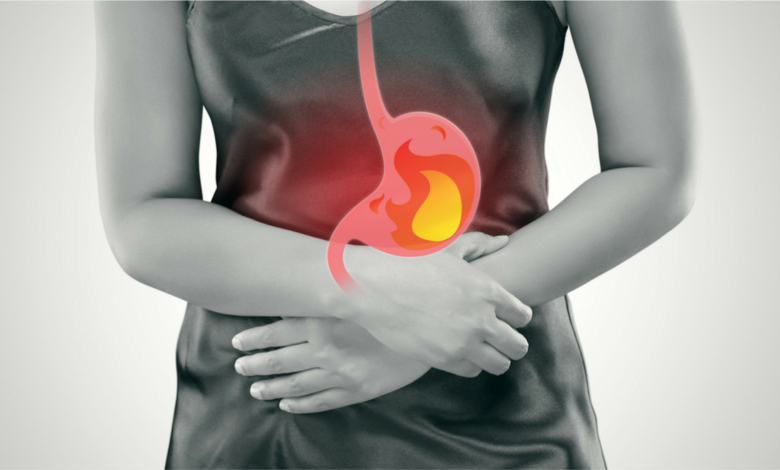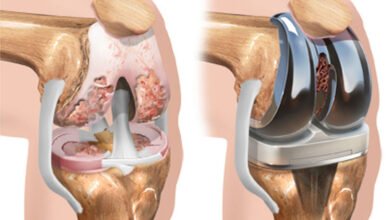Impact of Acidic Foods on Digestive Health

Discover the impact of acidic foods on digestive health. Learn about pH levels, effects on the digestive system, balancing acidic and alkaline foods, maintaining digestive health, and more. Find out how to make informed dietary choices and optimize your overall well-being. Check out this informative article now!
Digestive health is a crucial aspect of overall well-being. The food we consume plays a vital role in maintaining a healthy digestive system. In recent years, there has been a growing interest in the impact of acidic foods on digestive health. This article will explore the effects of acidic foods on digestion, provide insights into balancing acidic and alkaline foods, and offer tips for maintaining optimal digestive health in 2023.
Read More: Foods That Immediately Lower Stomach Acid
Understanding pH Levels and Acidic Foods
Before diving into the effects of acidic foods on digestion, it’s important to understand pH levels and acidity. The pH scale ranges from 0 to 14, with 0 being highly acidic, 7 being neutral, and 14 being highly alkaline. Acidic foods have a pH level lower than 7, while alkaline foods have a pH level higher than 7. Some common examples of acidic foods include citrus fruits, tomatoes, coffee, and vinegar.
Effects of Acidic Foods on Digestive Health
Consuming acidic foods can have various effects on digestive health. One of the most common issues associated with acidic foods is acid reflux and heartburn. The high acidity levels in these foods can cause the stomach acid to flow back into the esophagus, leading to discomfort and irritation.
Moreover, regular consumption of acidic foods can damage the delicate lining of the esophagus and stomach. Over time, this can result in conditions like gastritis and peptic ulcers, which can cause pain and inflammation.
Another aspect affected by acidic foods is the gut microbiota. The balance of bacteria in the gut plays a crucial role in digestion and overall health. Acidic foods can disrupt this balance, potentially leading to digestive disorders such as irritable bowel syndrome (IBS).
Balancing Acidic Foods with Alkaline Foods
To maintain a healthy digestive system, it’s essential to balance the intake of acidic and alkaline foods. While acidic foods can have negative effects on digestion, alkaline foods can help neutralize acidity in the body. Incorporating alkaline foods such as leafy greens, cucumbers, and almonds into your diet can provide numerous benefits. These foods can help reduce inflammation, support healthy digestion, and maintain a balanced pH level in the body.
Achieving a balanced pH is not only important for digestive health but also for overall well-being. By adopting a diet that includes a variety of alkaline foods and reducing the consumption of highly acidic foods, you can promote better digestive health and reduce the risk of related disorders.
Best Practices for Maintaining Digestive Health
In addition to balancing acidic and alkaline foods, there are several best practices for maintaining optimal digestive health. Portion control and moderation are key. Overeating, especially with acidic foods, can exacerbate digestive issues. It’s important to listen to your body’s signals and eat until you’re satisfied, not overly full.
Furthermore, dietary tips can greatly contribute to better digestion. Chewing food thoroughly, eating slowly, and staying hydrated are simple yet effective practices. Avoiding processed foods, excessive sugar, and unhealthy fats can also support a healthy digestive system.
Lifestyle changes can also play a significant role in digestive health. Regular exercise, managing stress levels, and getting enough sleep can positively impact digestion. It’s essential to remember that digestive health is a holistic endeavor that encompasses various aspects of life.
Acidic Foods and Digestive Disorders
The consumption of acidic foods can exacerbate existing digestive disorders. Individuals with gastritis, an inflammation of the stomach lining, should be cautious when consuming highly acidic foods as they can further irritate the stomach.
Similarly, individuals with gastroesophageal reflux disease (GERD) should limit their intake of acidic foods to alleviate symptoms. Acidic foods can trigger the relaxation of the lower esophageal sphincter, allowing stomach acid to flow back into the esophagus.
Acidic Foods and Oral Health
Acidic foods can also have negative effects on oral health. The high acidity levels in certain foods can erode tooth enamel over time, leading to tooth sensitivity and an increased risk of cavities. It’s important to practice good oral hygiene, including regular brushing and flossing, and to minimize exposure to acidic foods. Drinking water or rinsing the mouth after consuming acidic foods can help neutralize acidity and protect dental health.
Acidic Foods and Overall Well-being
While the focus of this article is on digestive health, it’s important to recognize that diet plays a crucial role in overall well-being. A balanced and nutritious diet, which includes a variety of foods from different pH levels, can support the body’s natural defenses, prevent diseases, and promote longevity. By being mindful of the acidity of the foods we consume, we can make informed choices that positively impact our health.
Conclusion
In conclusion, the impact of acidic foods on digestive health cannot be overlooked. While acidic foods can provide certain benefits and flavors, excessive consumption can lead to various digestive disorders and oral health issues. Balancing acidic foods with alkaline options, adopting healthy eating practices, and making lifestyle changes can all contribute to better digestive health in 2023. By taking care of our digestive system, we can enhance our overall well-being and lead a healthier life.
Read More: Oral Health Tips: Maintaining a Healthy Smile 2023
FAQs
Are all acidic foods bad for digestion?
No, not all acidic foods are bad for digestion. Moderation is key, and some acidic foods can be consumed in moderation without causing issues for most individuals.
How can I reduce acid reflux caused by acidic foods?
To reduce acid reflux, avoid lying down immediately after eating, maintain an upright posture, and try consuming smaller, more frequent meals. It may also help to identify trigger foods and avoid them.
Can acidic foods cause stomach ulcers?
While acidic foods don’t directly cause stomach ulcers, they can aggravate existing ulcers or cause discomfort in individuals with sensitive stomachs. It’s important to consult a healthcare professional for personalized advice.
Are there any health benefits to consuming acidic foods?
Yes, acidic foods can provide certain health benefits. For example, citrus fruits are rich in vitamin C, which supports the immune system. However, moderation is key, as excessive consumption can have negative effects on digestion.
What are some common alkaline foods?
Common alkaline foods include leafy greens, cucumbers, broccoli, avocados, and almonds. These foods can help balance acidity in the body and promote better digestion.







